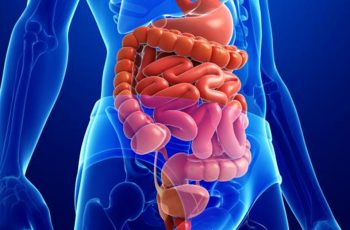As I strive to maintain a healthy lifestyle, I’ve come to realize the importance of making smart choices when it comes to the beverages I consume. The truth is, many of the drinks we commonly reach for can be detrimental to our health. From sugary soft drinks to high-calorie concoctions, these beverages can be a hidden source of unwanted liquid calories. It’s time to take control of our hydration routines and ditch the unhealthy options. Let; ‘s dive deeper into beverages stop consuming today.
When we think about unhealthy drink alternatives, soda is often the first that comes to mind. But there are other culprits that we need to be aware of as well. Cutting out these beverages can lead to a significant reduction in liquid calories and have a positive impact on our well-being.
So, let’s explore the top 5 beverages to stop consuming today for better health:
Beverages Stop Consuming Today Explored
- Reducing liquid calories is essential for maintaining a healthy lifestyle.
- Quitting sugary drinks like soda is a great first step.
- There are healthier beverage choices available to replace soft drinks.
- Low-calorie drink swaps can provide a refreshing and nutritious alternative.
- Cutting out liquid sugars can have a positive impact on our overall well-being.
Caffeinated Foods and Beverages
Caffeine is a central nervous system stimulant that can have negative effects on sleep. It’s important to be aware of the impact of caffeinated foods and beverages on your sleep cycle, as they can disrupt sleep patterns and make it harder to fall asleep.
Beverages like soda, coffee, tea, and even chocolate contain caffeine, which can interfere with sleep duration and quality. Consuming caffeine many hours before bedtime can still have a significant influence on your sleep, so it’s crucial to be mindful of your caffeine intake, especially if you are sensitive to its effects.
Caffeine has a stimulating effect on the central nervous system, which can lead to increased alertness and a delay in the onset of sleep. It can also reduce the total amount of deep sleep, resulting in a less restorative sleep experience. These negative effects of caffeine on sleep can create a vicious coffee cycle, where you rely on caffeine to combat fatigue caused by lack of sleep, which further disrupts your sleep patterns.
If you’re having trouble sleeping, it might be beneficial to limit your consumption of caffeinated foods and beverages, particularly in the hours leading up to bedtime. Instead, opt for caffeine-free alternatives like herbal tea or decaffeinated coffee to promote better sleep and overall well-being.
Spicy Foods
Eating spicy foods, particularly close to bedtime, can cause indigestion and worsen symptoms of heartburn and acid reflux. These symptoms can disrupt sleep and prevent you from getting a restful night. Additionally, spicy foods may increase your core and surface body temperature temporarily, which can negatively affect sleep. If you experience heartburn or discomfort after consuming spicy foods, it is advisable to avoid them before bedtime.
To promote better sleep and minimize the risk of indigestion, heartburn, and acid reflux, it is recommended to choose milder options for your evening meals. Opt for meals that are less spicy or have a lower spice level, and experiment with non-spicy seasonings and flavors.
Additionally, incorporating foods that have natural cooling properties can help counteract the increase in body temperature caused by spicy foods. Some examples include cucumber, watermelon, yogurt, and mint. These foods can help soothe the digestive system and promote a more comfortable and restful sleep.

High Glycemic Index Foods and Added Sugar
Diets high in foods with a high glycemic index and added sugars can have a significant impact on sleep quality. Consuming these types of foods before bed can lead to sleep disturbances and poor sleep. The consumption of high glycemic index foods causes spikes and drops in blood sugar levels, which can trigger the release of hormones that may result in symptoms like anxiety and hunger. Furthermore, high glycemic diets can cause inflammatory responses and imbalances in beneficial intestinal bacteria, further affecting sleep.
To promote better sleep, it is advisable to avoid high glycemic index foods and foods high in added sugars close to bedtime. Instead, opt for foods with a lower glycemic index, such as whole grains, vegetables, and fruits. These choices contribute to more stable blood sugar levels, helping to regulate hormone production and improve sleep quality.
Fatty Foods
Diets high in fatty foods can have a detrimental effect on our sleep. These foods, which are often rich in saturated fats and trans fats, can contribute to sleep disturbances and hinder a good night’s rest. Consuming fatty foods like fried chicken and fatty meats can result in lighter, less restorative sleep, a decrease in total sleep time, and even potential sleep disorders. Additionally, heavy, fatty meals can overload the digestive system, increasing the likelihood of symptoms like acid reflux, which can further disrupt sleep.
If you’re looking to improve your sleep quality, it’s advisable to opt for low-fat food options and avoid consuming high-fat foods close to bedtime. By making healthier choices and minimizing the intake of fatty foods, you can support better sleep and wake up feeling more refreshed.

Ultra-Processed Foods
When it comes to our diets and sleep quality, the impact of ultra-processed foods cannot be ignored. These foods, including fast food and packaged snacks, have been strongly associated with poor sleep quality and shorter sleep duration.
Diets that are high in ultra-processed foods have been found to increase the odds of experiencing insomnia and sleep disturbances. These foods are often loaded with refined carbohydrates, added sugars, and unhealthy fats, all of which can disrupt sleep patterns and contribute to weight gain.
To improve sleep quality, it is important to opt for whole, unprocessed foods and minimize the consumption of ultra-processed foods, especially before bedtime. By making healthier food choices and avoiding fast food and packaged snacks, we can support better sleep and overall well-being.
The Impact of Ultra-Processed Foods on Sleep
- Ultra-processed foods, such as fast food and packaged snacks, have been linked to poor sleep quality and shorter sleep duration.
- Diets high in ultra-processed foods increase the odds of experiencing insomnia and sleep disturbances.
- These foods are often high in refined carbs, added sugars, and unhealthy fats, which can disrupt sleep patterns.
- Choosing whole, unprocessed foods and minimizing the consumption of ultra-processed foods before bed can help improve sleep quality.
Conclusion
Making conscious choices about the beverages we consume can have a significant impact on our sleep and overall health. It is important to avoid beverages that can disrupt our sleep patterns such as caffeinated foods and beverages, spicy foods, high glycemic index foods, fatty foods, ultra-processed foods, and excessive added sugars.
Instead, choosing healthier alternatives can help us stay hydrated and achieve the restful sleep we need for optimal health. Good options include drinking water, herbal teas, homemade smoothies, and other nutritious beverage choices.
By ditching the unhealthy drink options and opting for healthier alternatives, we can promote better sleep and support our well-being. So, let’s be mindful of what we drink and make choices that contribute to a good night’s sleep and overall wellness.




